From east to west and vice versa
The construction of the inner-German border began on August 13, 1961. For 28 years, it was to visibly manifest the separation of West Germany and the GDR. Many people only realized just how much when the borders between the two German states were open again. A field report.
It was about 20 years ago that I met Alexander Tauscher. At the time, we were both working for different radio stations. Alexander, I learn, "tasted blood" during a visit to the then RIAS in Berlin, where he met the station's director. That was in the spring of 1990. Today, he presents the program "Radioreise" for many German radio stations. My connection to radio is five years older: an internship at Radio Luxembourg, the best-known commercial German-language station in Europe at the time.
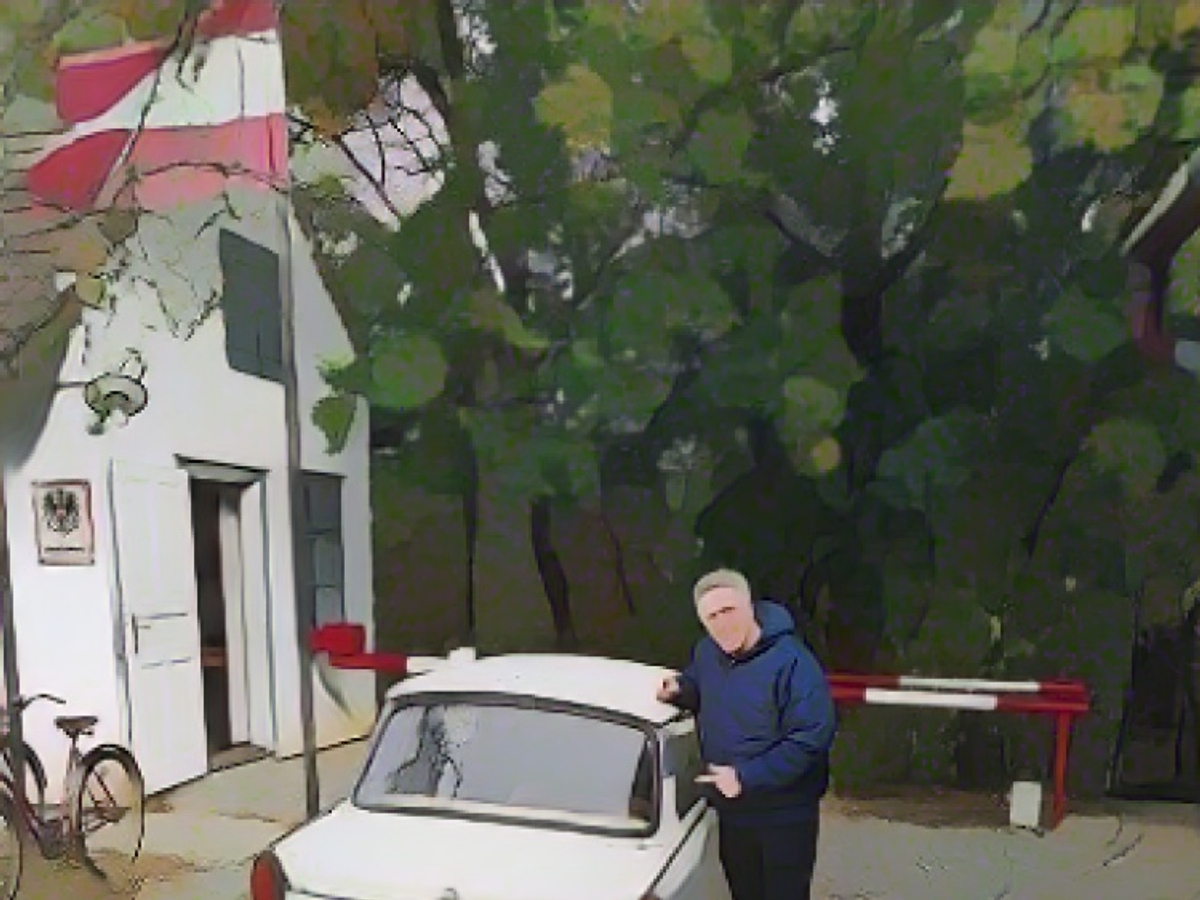
I only found out a few days ago that we still had something in common: it was the same Saturday in 1989 when we set off on a journey to the other Germany. Alexander on a D train from what was then Karl-Marx-Stadt, now Chemnitz, to West Berlin, me in a Toyota from Hanover to Magdeburg. Alexander knows West Germany from West German television and RIAS: "We lived two lives: During the day we were GDR citizens, in the evening we listened to ARD, ZDF and West German radio from Munich, Berlin and Hamburg." I knew East Germany mainly through rock music and the GDR youth radio station DT64, which I listened to constantly during the fall of communism in the GDR.
The trip to the loo
Alexander had to wait a few weeks for his first trip to the West. He was 16 years old at the time and went to the "EOS Friedrich Engels" in Hohe Straße, the only "extended secondary school" in Chemnitz where you could learn four languages. In 1992, it was converted into a grammar school. The six-day week, which was abolished in December 1989, applied there - as in grammar schools throughout the GDR. Alexander didn't leave for West Berlin until a few weeks after the border was opened, at six in the morning. "The D train we were on was so full that not everyone had a seat. One of us even made the journey in the loo. Whenever someone had to go, he went into the corridor for so long," Alexander remembers.
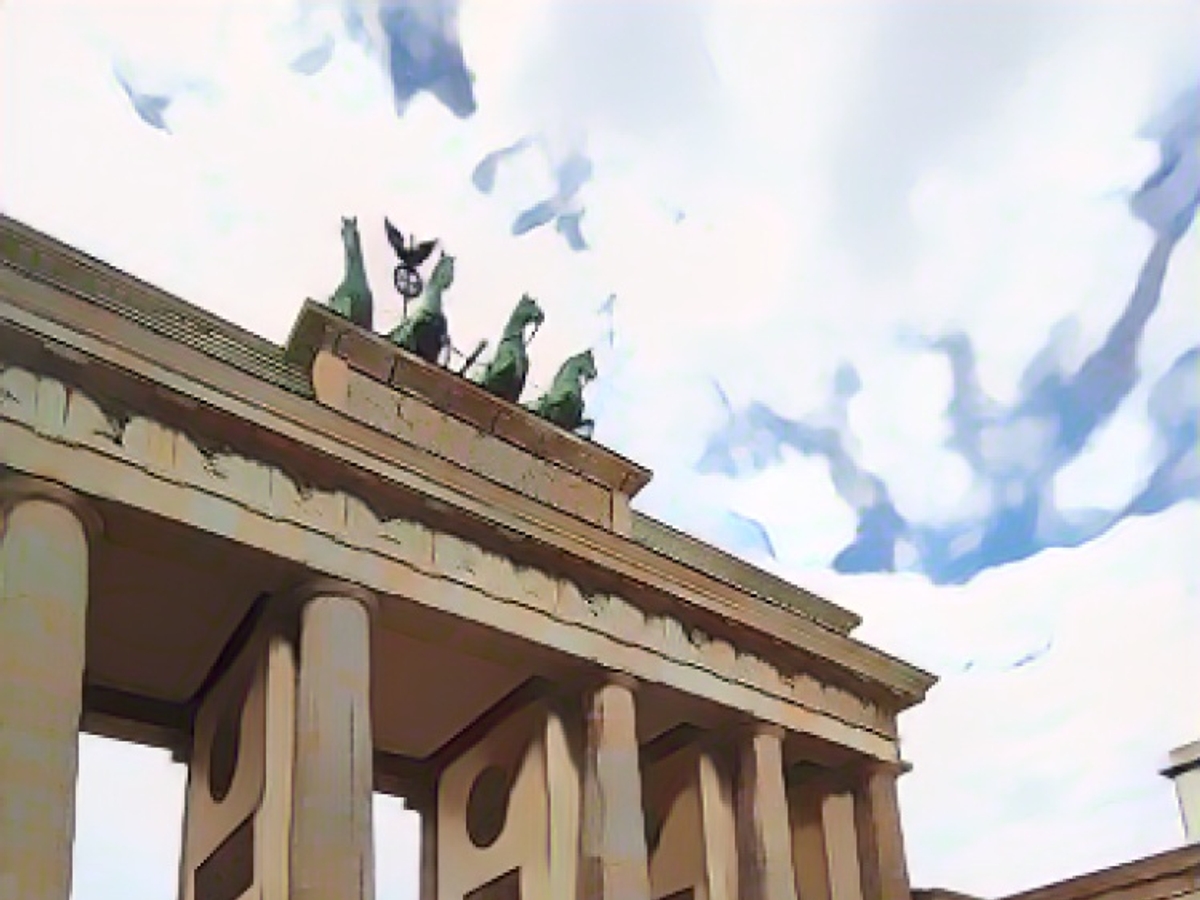
His first highlight: "The airport in Berlin-Schönefeld. Just before the train stopped there, you could already see the skyscrapers of Neukölln. That was my first glimpse of the West." Later, the journey continues on the S-Bahn, and finally: Berlin-Charlottenburg station. Alexander and his parents arrive there in the late morning.
My family and I set off for the GDR in the car that Saturday. It's a leisurely drive through Lower Saxony. But I have an uneasy feeling the closer we get to the border, which still existed at the time. On the west side, a few customs officers look on impassively behind us. Then the border and the involuntary thought: I hope we don't drive onto a mine. There are few cars heading in our direction and we have a clear view of the watchtowers on the GDR side. They are still manned by GDR border guards. We are allowed to drive through. No one comes to search our trunk. But we don't have anything in it anyway. For security reasons. You never know.
Like Armstrong during the moon landing
A long row of cars in the opposite direction, all Trabbis and Wartburgs. And lots of children on our side. They wave and wave, happy about the visit from the West. We have tears in our eyes. Then finally in Magdeburg. We park in the city center. I get out, anticipating the stench of two-stroke petrol that the Trabbis run on. I take a careful breath. Nothing. Nevertheless, I somehow feel like Armstrong when he landed on the moon.
But there are no aliens. There's nobody there. Magdeburg's city center is empty. Nobody is shopping, even though there are several stores. But they are all closed, the shop windows are empty - except for a salami in the window of a butcher's store. The bright autumn sun makes the city center look even more desolate. The picture doesn't change until the afternoon. Friendly, smiling people stroll through Magdeburg with us, fashionably dressed and enjoying the surprisingly warm day. They had spent the morning in the west, shopping in the western supermarket. Christmas is just around the corner. And finally you can go to the West to enjoy the festivities. Maybe the borders will be closed again afterwards, you never know.
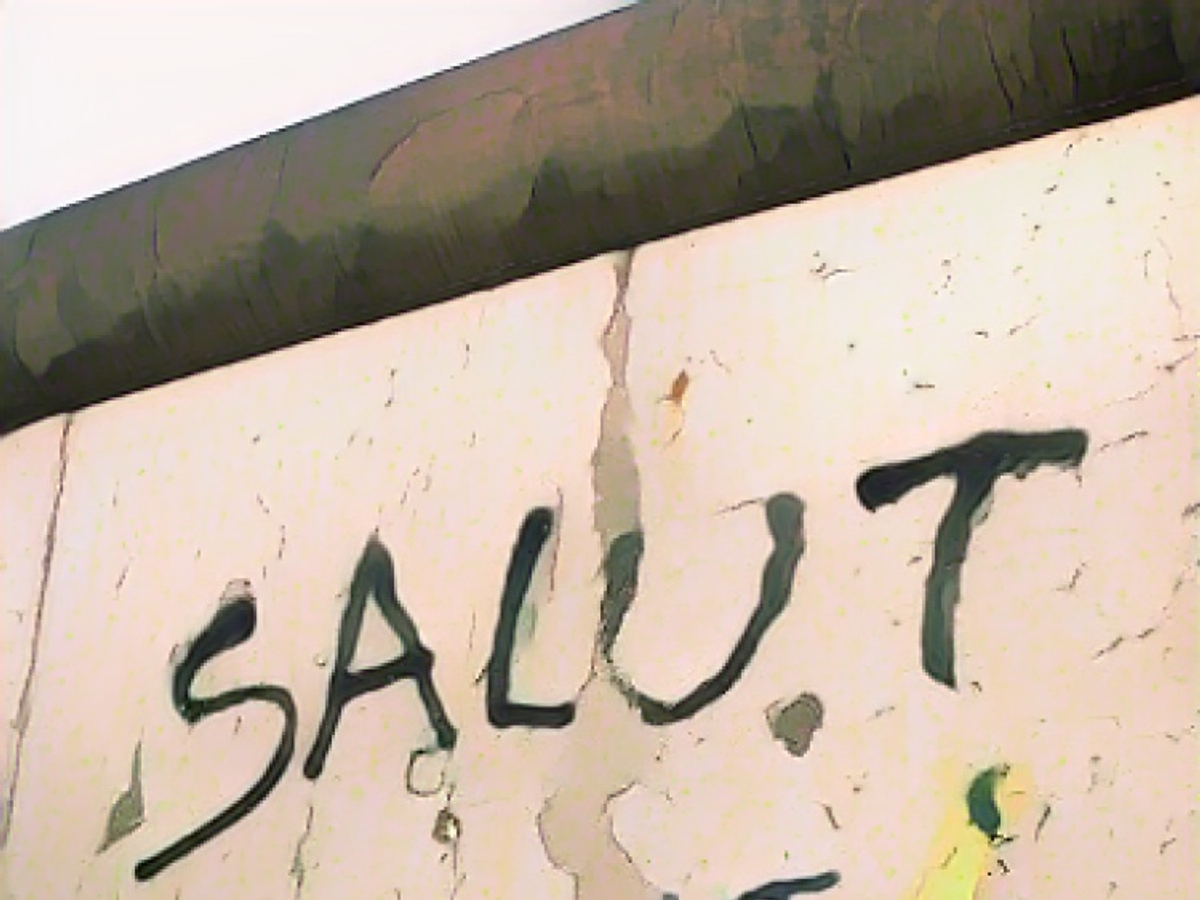
Not so with Alexander. "We passed a Turkish fruit stall at Charlottenburg S-Bahn station," he says. "That was the first thing I consciously smelled in the West: The tropical fruit. I'll never forget that." And then: collecting the welcome money. It's quick and easy: go into a bank, queue up, show your ID. It is stamped, then you go to the next queue and get your first 100 Westmarks.
Alexander uses his welcome money to go to a music store and buy cassettes to record the RIAS meeting point. "We also had cassettes from time to time, but they cost 20 GDR marks a piece," he remembers. But first it was time for lunch: "My father really wanted to eat pea soup at the snack bar. It was too expensive for me."
"The cook is one of them"
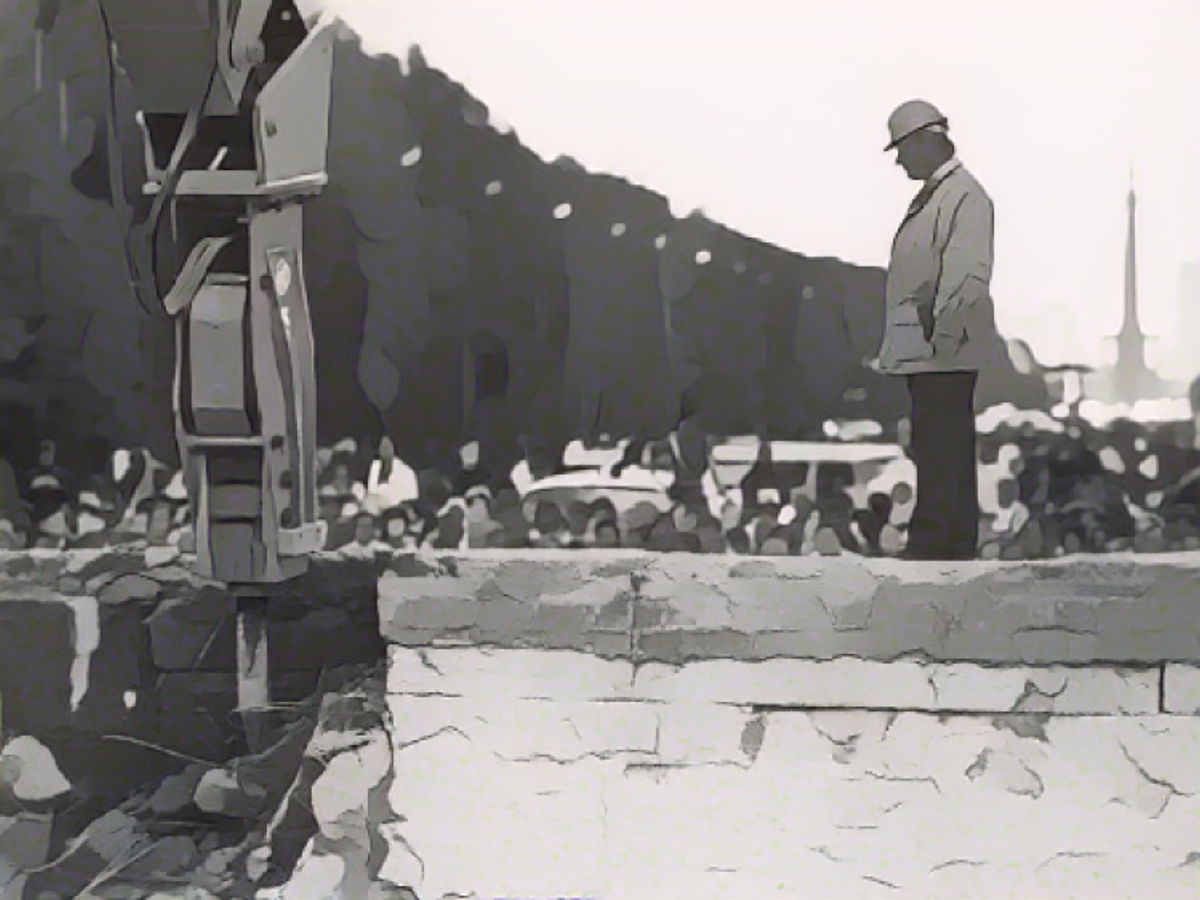
My lunch in Magdeburg - princely. It's hard to find an open restaurant, let alone an open snack bar. But then there is this restaurant near the main train station that we go into. There are no other customers and no menu. There is a menu of the day on a blackboard. My first GDR meal consists of a noodle soup, a huge portion of roast pork with dumplings and red cabbage, and for dessert: strawberries with whipped cream. We are delighted - until the bill arrives. That's when we realize we've made a mistake. We are in a "GDR", a "German Democratic Restaurant", and we are only allowed to pay with GDR money. We have forgotten that. We decide: We'll pay with West German money, and we'll pay the appropriate West German price. So we wave the extremely friendly waitress over. She sees what we're up to, points in the direction of the toilet and disappears. A little later, my father and I meet the waitress at the specified location. She's happy about the huge tip, points towards the kitchen and says: "The cook can't know that, she's one of them." So she's a Stasi informant. And suddenly we realize: the Stasi is still omnipresent, even after the opening of the border.
The menu costs five GDR marks per person. Based on the unofficial exchange rate, when eight GDR marks were worth one D-Mark, each of us would have had to pay 25 cents for a sumptuous three-course meal in today's currency!
A stroll through the city
The afternoon is similar for Alexander and me: we stroll through the city. We can't buy anything: the stores are closed in Magdeburg and Alexander has spent his welcome money. And yet: "The colorful shop windows, the advertising pillars, that's what I remember. Even people's faces looked fresher and healthier."
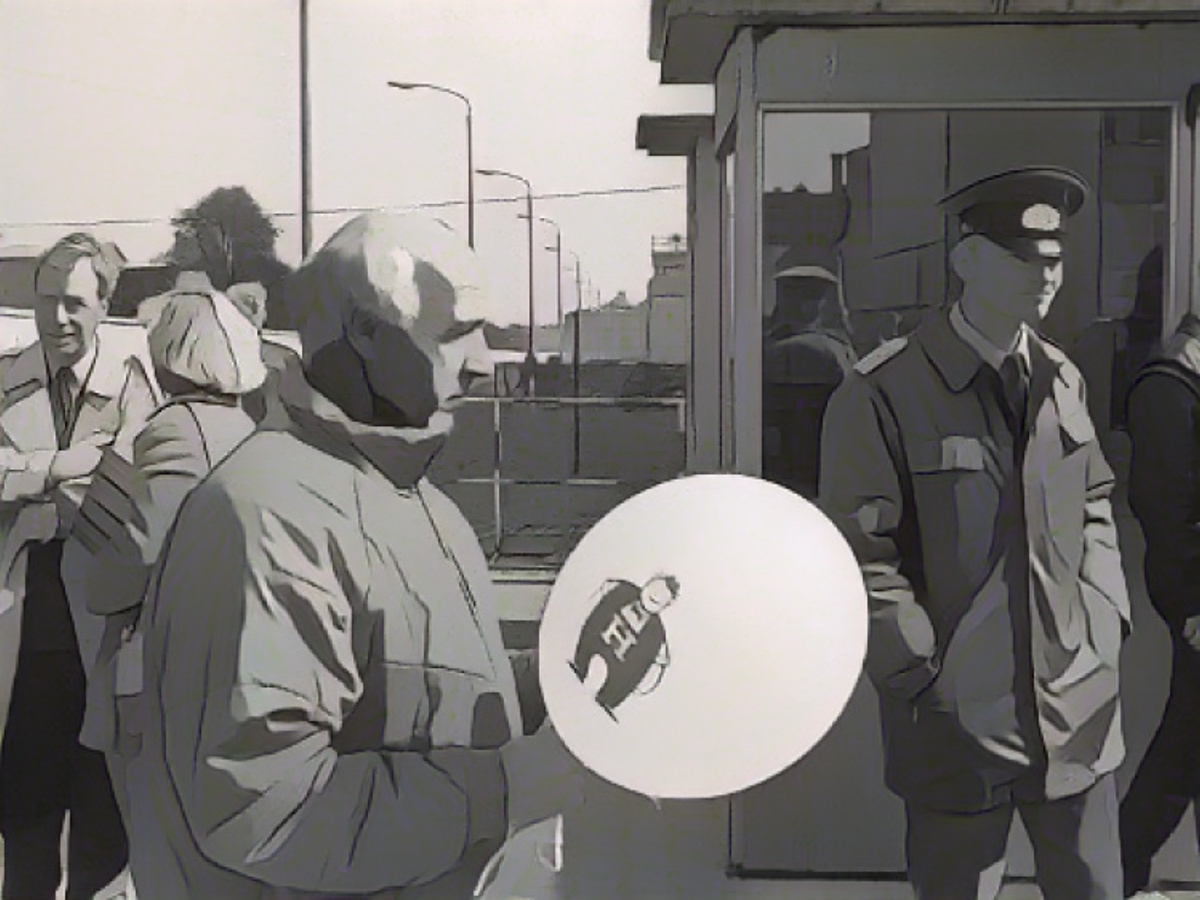
I particularly remember the Elbe bridge, which shook dangerously when the streetcar ran over it. And the friendly man who helped my parents. They discovered in the station toilet that the current five-year plan didn't provide any paper there. The man was able to help out: With the Saturday edition of the "Zentralorgan", i.e. Neues Deutschland. In return, he wanted a disposable lighter from me, which were hardly available in the GDR. Just in case the borders were closed again. You never know.
I had this feeling the whole time during my first visit to the GDR: they're closing the borders and you're still inside. Anything could have happened so soon after the border was opened: from a "new" GDR to the unification of the two Germanys by the turn of the millennium. But almost nobody believed that it would only take another ten months to achieve "German unity".
Tears in his eyes
The return journey for Alexander to the East and for me to the West is then unspectacular. Alexander says that he wanted to return to the paradise of West Berlin as quickly as possible.
And I notice that the number of people waving has tripled in the meantime: Now the adults are waving too. And while Alexander is overwhelmed by sadness and homesickness for the West on his packed train to Karl-Marx-Stadt, I feel pity and shame. We both have tears in our eyes.
Following from the text, here are 2 sentences in English that contain the given words:
- After the fall of the Berlin Wall in 1989, the current affairs in International politics revolved around the unification of Germany.
- Alexander Tauscher, who visited West Berlin from East Germany in 1990, remembered his first sight of the West as the "tropical fruit" smell at the Turkish fruit stall in Charlottenburg S-Bahn station.
Source: www.ntv.de






